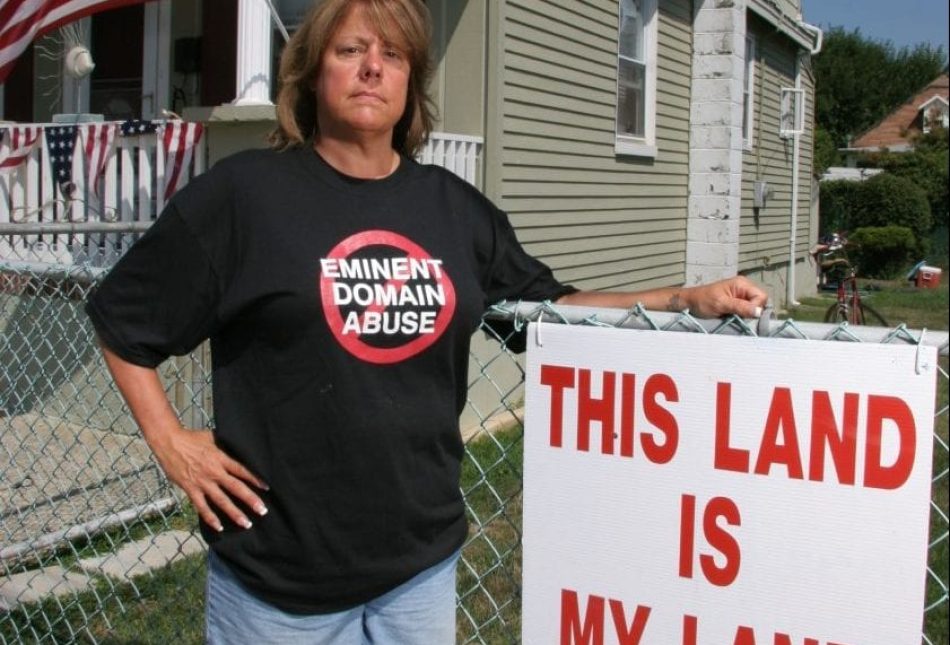Eminent Domain Reform a Must This Session

Things are finally looking up for New Mexico property owners. As most people are aware, in June of 2005 the United States Supreme Court further weakened the constitutional protection of personal property rights when it ruled in Kelo v. New London that any government could take a person’s property and transfer it to another, more connected private interest, in the name of economic development and greater tax revenue.
The court left it up to the states or congress to enact legislation to restore the constitutional protection of property owners. New Mexico’s Legislature passed a bill unanimously last session, which Gov. Richardson vetoed. Proponents of property rights, justifiably shocked and dismayed by the governor’s veto, look for actions this year to result in stronger protections.
Legislation passed last year was insufficient as it only protected owners from the taking of their property on behalf of another, presumably more well-connected private interest, for three years. Three years and one day later, the government could dispose of it as they wished. To his credit, and with the understanding that a vast majority of New Mexicans want their property rights protected, Gov. Richardson did not simply veto the bill.
Instead, he quickly formed a task force to study the eminent domain issue and make recommendations for the 2007 legislative session. More recently, Richardson has endorsed the task force’s recommendations and says that he plans to have them introduced as a package of reforms in the Legislature.
Those recommendations have been released and after careful analysis it is clear that the task force agreed with the Rio Grande Foundation and others that property rights must be protected. Recommendations made by the task force included:
- Repeal of both the Urban Renewal and the Community Development laws. Over time, layers of laws have been enacted in New Mexico pertaining to eminent domain. This unanimous recommendation more clarifies than changes policy.
- On a 10-7 majority vote, the task force recommended removing eminent domain authority from the Metropolitan Redevelopment Act. This is where the task force takes its firm stance against eminent domain for economic development and against the Kelo decision. The task force explicitly states that governmental “police powers” are the appropriate way to remedy “hazardous and unsafe conditions” without resorting to the “extreme powers contained in the Metropolitan Redevelopment Act.”
- In another move to protect property owners, 14 of the 17 members of the task force expressed concern that “nearly any property in New Mexico could be found to be a slum or blighted area as currently defined.” To remedy this situation, the task force urges clearer language to ensure that “blight” really means what the term implies.
- The task force also unanimously urged several procedural changes including increased hearing and notice requirements prior to eminent domain proceedings and the provision of relocation and transition assistance for those affected by eminent domain. Elsewhere, statutory language would be tightened under the task force’s recommendations.
These recommendations are an important contribution to the debate over eminent domain. Despite the overwhelming opposition to abuse of eminent domain as evidenced by the public outcry in the wake of Kelo, special interests — developers and representatives of local governments — have been effective in bottling up legislation in Congress and in some states. In fact, William Fulginiti, executive director of the New Mexico Municipal League, said that organization strongly opposed the task force’s recommendations and would work to prevent them from being implemented.
If Gov. Richardson truly has national ambitions, he must ignore Fulginiti and others who want to weaken your property rights and act this year on eminent domain. The task force’s recommendations are sound; the time for action is now.
Siebert Ickler, of Las Cruces, is an adjunct scholar with New Mexico’s Rio Grande Foundation, an independent, non-partisan, tax-exempt research and educational organization.
